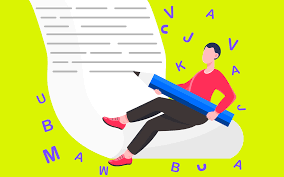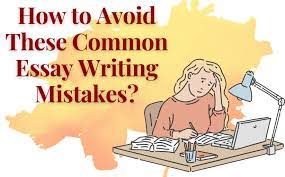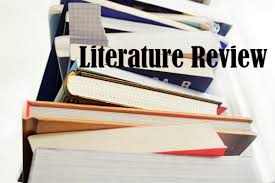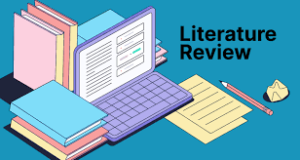140+ Informative Essay Topics for Every Students
What Is an Informative Essay
Have you ever pondered what a informative essay is? Well, worry no more! An informative essay is a type of academic writing whose purpose is to inform the reader about a specific topic. Instead of expressing opinions or attempting to persuade the reader, it is intended to provide objective information and facts.
From the history of the Internet to the health benefits of meditation, informative essays can cover a vast array of topics. They can also be written in various genres, including descriptive, compare-and-contrast, cause-and-effect, and narrative.
One of the many benefits of informative essays is that they can be an enjoyable and engaging way to learn about a new topic. They frequently require investigation, allowing you to delve deeply into a topic and uncover previously unknown information. And because they are objective, you can be confident that the information you are receiving is accurate and trustworthy.
When searching for informational topics to write about, it is essential to remain objective and factual. You want to give the reader as much information as possible so that they can make educated decisions.
In conclusion, an informative essay is a type of academic essay that aims to inform the reader about a specific topic. They can encompass a variety of topics and be written in various styles. So, if you want to learn something new, why not investigate our informative essay topics?
In the meantime, let’s examine how to choose the best topics for informative essays in the section that follows.
How to Select Topics for Informative Essays
Selecting the proper informative essay topic is crucial for writing an engaging and enlightening piece. The subject should be engaging, pertinent, and informative. Consequently, what is the initial phase in writing an informative essay? Here are five guidelines for selecting an informative essay topic from our custom essay writing service:

Identify your interests and passions – Begin by generating a list of topics about which you are impassioned or have a strong interest. It could be a hobby, a specific field, or something you have personally experienced. Choosing a topic that interests you will make research and writing about it simpler.
Investigate current events and trends – Search for current events and trends that pique your interest. For instance, a new technology, a social issue, or a cultural phenomenon with widespread appeal. There will be an abundance of information available to write a comprehensive essay on these topics, which are frequently popular and pertinent.
Consider your audience – Consider who your audience is and what information they might be interested in. Consider topics that are pertinent to the age, interests, and requirements of your audience.
Concentrate on a specific facet of a wide topic – Narrow down broad topics to a specific facet that you can concentrate on in your essay. For instance, if the broad topic is climate change, you can concentrate on the effects of climate change on a specific ecosystem or a policy.
Collaborate with others to generate essay ideas – Collaborate with others, such as classmates or coworkers, to generate essay ideas. Discussion with others can help generate new ideas and perspectives for an informative essay.
By following these guidelines and researching the best informative essay topics, you can create an informative essay that not only informs but also entertains and inspires your audience. Remember to remain creative, inquisitive, and open-minded when choosing a topic for your informative essay, and you’ll be able to write an essay that stands out.
A List of Excellent Informative Essay Topics
When it comes to informative essay writing, the topic is everything. Selecting the appropriate topic can make all the difference when writing a well-researched and engaging article. With so many options available, it can be difficult to know where to start. In the following paragraphs, we will discuss some excellent topics for informative essays that can inspire and guide you as you select the ideal topic for your paper.
From current events and social issues to science and technology, these essay topics for students cover a wide spectrum of topics and provide limitless research and exploration opportunities. Whether you wish to educate, persuade, or simply inform your audience, there is certain to be a topic that will pique your interest and captivate your audience. Therefore, let’s examine some excellent informative essay samples and get you began on your writing journey!
Easy Informative Essay Topics
These simple, informative essay topics are excellent jumping-off points for those who wish to write an uncomplicated and informative essay.
- How to choose the right pet for your lifestyle
- The benefits of regular exercise for overall health and well-being
- The history and origins of popular holidays, such as Halloween or Valentine’s Day
- The importance of recycling and reducing waste in daily life
- The process of making homemade soap or candles
- The impact of social media on communication and relationships
- The benefits of a healthy diet and proper nutrition
- The origins and cultural significance of various superstitions
- The history and importance of voting in democratic societies
- The benefits and drawbacks of using ride-sharing services like Uber or Lyft
- The process of baking bread from scratch
- The history and impact of video games on culture and society
- The importance of wearing sunscreen and protecting skin from UV rays
- The benefits of meditation and mindfulness for mental health
- The impact of stress on the body and how to manage it effectively
- The process of planting and maintaining a vegetable garden
- The history and significance of famous landmarks, such as the Eiffel Tower or the Great Wall of China
- The impact of music on mood and emotions
- The benefits of learning a second language
- The process of brewing coffee or tea at home.
Informative Essay Topics for Middle School Students
The following informative paper topics are tailored to middle school students and encompass a wide range of interesting and relevant topics.
- How to save money and manage finances responsibly
- The benefits and drawbacks of technology in the classroom
- The history and significance of the Civil Rights Movement
- The impact of pollution on the environment and human health
- The importance of physical fitness and exercise for children and adolescents
- The process of photosynthesis and its importance in the ecosystem
- The effects of bullying on mental health and well-being
- The importance of good hygiene and handwashing to prevent illness
- The history and significance of the Olympic Games
- The impact of social media on mental health and relationships
- The benefits and drawbacks of homework in education
- The process of creating a healthy meal plan and balanced diet
- The history and cultural significance of different types of music genres
- The effects of video games on brain development and behavior
- The importance of conserving natural resources and protecting the environment
- The history and significance of famous landmarks, such as the Statue of Liberty or the Pyramids of Egypt
- The impact of peer pressure on decision-making and behavior
- The benefits of reading and how to develop good reading habits
- The process of creating a successful science fair project
- The history and impact of famous inventors and their inventions.
Informative Essay Topics for High School Students
Here are some excellent topics for essays for high school students. Our college essay writing service recommends conducting extensive research, providing evidence to support your claims, and presenting your findings clearly and logically.
- The effects of social media on mental health and relationships
- The history and impact of the Civil Rights Movement
- The process of writing a successful college application essay
- The benefits and drawbacks of technology in education
- The effects of climate change on the environment and human health
- The process of starting and managing a small business
- The history and significance of different types of art movements
- The impact of globalization on world economies and cultures
- The importance of financial literacy and money management skills
- The process of creating a successful research paper or project
- The history and significance of famous political movements, such as feminism or the labor movement
- The effects of drug and alcohol abuse on mental and physical health
- The benefits and drawbacks of alternative forms of energy, such as solar or wind power
- The history and cultural significance of different types of literature genres
- The impact of mental illness on individuals and society as a whole
- The process of creating and implementing a successful study plan
- The history and significance of different types of philosophical schools of thought
- The benefits and drawbacks of online learning and virtual classrooms
- The effects of sleep deprivation on mental and physical health
- The process of preparing for and taking the SAT or ACT.
Informative Essay Topics for College Students
Here is a list of informative essay topics for college students that cover a broad spectrum of subjects and will aid them in their academic and professional endeavors.
- The impact of social media on modern-day communication and relationships
- The history and evolution of the English language
- The benefits and drawbacks of distance learning and online education
- The process of applying for and securing financial aid for college
- The effects of climate change on global health and the environment
- The history and impact of major political ideologies, such as capitalism or socialism
- The benefits and drawbacks of the gig economy and freelance work
- The process of creating and launching a successful startup company
- The history and cultural significance of different types of music genres
- The impact of artificial intelligence and machine learning on society and the economy
- The process of writing and publishing a successful book or novel
- The effects of the gig economy and freelance work on the job market and labor laws
- The benefits and drawbacks of socialized medicine and universal healthcare
- The history and significance of different types of art movements
- The impact of the Internet and digital technology on privacy and security
- The process of creating and implementing an effective marketing strategy
- The history and significance of different types of philosophical schools of thought
- The benefits and drawbacks of renewable energy sources, such as solar or wind power
- The effects of globalization on world economies and cultures
- The process of preparing for and applying to graduate school.
Fun Informative Speech Topics
These amusing and informative speech topics are intended to captivate and entertain audiences while providing informative and educational material.
- The history and cultural significance of comic books
- The science behind the perfect cup of coffee
- The benefits and drawbacks of different types of diets, such as veganism or keto
- The history and evolution of video games
- The process of making homemade ice cream
- The cultural significance of different types of dance styles
- The benefits and drawbacks of meditation and mindfulness practices
- The history and cultural significance of memes
- The process of creating and launching a successful YouTube channel
- The benefits and drawbacks of different types of exercise regimens, such as CrossFit or Pilates
- The history and cultural significance of street art and graffiti
- The process of creating and publishing a successful podcast
- The benefits and drawbacks of different types of travel accommodations, such as hotels or Airbnb
- The history and cultural significance of hip hop music and culture
- The process of creating and performing stand-up comedy
- The benefits and drawbacks of different types of social media platforms, such as Instagram or Twitter
- The history and cultural significance of tattoos and body art
- The process of creating and launching a successful fashion brand
- The benefits and drawbacks of different types of outdoor activities, such as hiking or rock climbing
- The history and cultural significance of the LGBTQ+ community and movements.
Creative Informative Speech Topics
These creative essay topics are designed to spark curiosity and interest in unique and unconventional subjects.
- The science behind lucid dreaming and how to achieve it
- The history and cultural significance of circus arts
- The benefits and drawbacks of different types of alternative medicine, such as acupuncture or aromatherapy
- The history and cultural significance of magic and illusions
- The process of creating and launching a successful mobile app
- The benefits and drawbacks of different types of alternative transportation, such as bicycles or electric cars
- The history and cultural significance of drag culture and performance
- The process of creating and performing spoken word poetry
- The benefits and drawbacks of different types of alternative energy sources, such as geothermal or hydroelectric power
- The history and cultural significance of tarot and divination
- The process of creating and launching a successful e-commerce business
- The benefits and drawbacks of different types of alternative education, such as homeschooling or unschooling
- The history and cultural significance of burlesque and cabaret performance
- The process of creating and publishing a successful webcomic
- The benefits and drawbacks of different types of alternative housing, such as tiny homes or Earthships
- The history and cultural significance of drag racing and motorsports
- The process of creating and performing improv comedy
- The benefits and drawbacks of different types of alternative farming, such as aquaponics or permaculture
- The history and cultural significance of puppetry and marionettes
- The process of creating and launching a successful food truck business.
Extra Ideas for Informative Essay
These unique ideas cover various informative writing topics that can appeal to various interests and tastes.
- The challenges and opportunities of sustainable development in third world countries.
- The history and cultural significance of street food around the world
- The history and cultural significance of folk music around the world
- The benefits and drawbacks of different types of sports supplements
- The impact of technology on education and learning
- The process of creating and publishing a successful graphic novel
- The history and cultural significance of drag queens and drag culture
- The impact of social media on politics and elections
- The history and cultural significance of punk rock music
- The benefits and drawbacks of different types of home automation technology
- The impact of artificial intelligence on the job market
- The history and cultural significance of Japanese anime and manga
- The benefits and drawbacks of different types of vegetarian diets
- The impact of technology on personal privacy
- The benefits and drawbacks of different types of dating apps
- The impact of social media on body image and self-esteem
- The benefits and drawbacks of different types of online shopping platforms
- The impact of technology on the music industry
- The history and cultural significance of modern art movements.
- Positive and negative effects of working from home
Informational Paper Topics about Sports
These informative essay topic ideas cover a broad range of sports-related subjects that can be explored in an informative paper.
- The psychological benefits of exercise for mental health
- The history and evolution of basketball
- The impact of sports on child development and education
- The history and evolution of football
- The benefits and drawbacks of different types of sports supplements
- The impact of technology on sports performance and training
- The history and evolution of soccer
- The benefits and drawbacks of different types of sports drinks
- The impact of social media on sports and athletes
- The history and evolution of baseball
- The benefits and drawbacks of different types of sports equipment
- The impact of sports on community development and social cohesion
- The history and evolution of tennis
- The benefits and drawbacks of different types of sports injuries and treatments
- The impact of sports on tourism and local economies
- The history and evolution of gymnastics
- The benefits and drawbacks of different types of sports psychology techniques
- The impact of sports on gender and identity
- The history and evolution of the Olympic games
- The benefits and drawbacks of different types of sports performance-enhancing drugs.
Conclusion
Choosing a topic for an informative essay can be difficult, but it is crucial to select a subject that is engaging, informative, and pertinent to the intended audience. Whether you are writing for high school, college, or professional audiences, informative essay topics are virtually limitless. Now that you understand the function of an informative essay, you must identify a topic that you are impassioned about, conduct extensive research, and present your findings in a clear and organized manner.
In the interim, you can always obtain high-quality papers from our team of seasoned writers. Using our paper writing service, you can complete math assignments of any level of difficulty.
We can edit your essay draft or write one from beginning. With us, you can receive prompt assistance on any topic. Whether it’s an informative or persuasive essay, we can manage any writing assignment.






